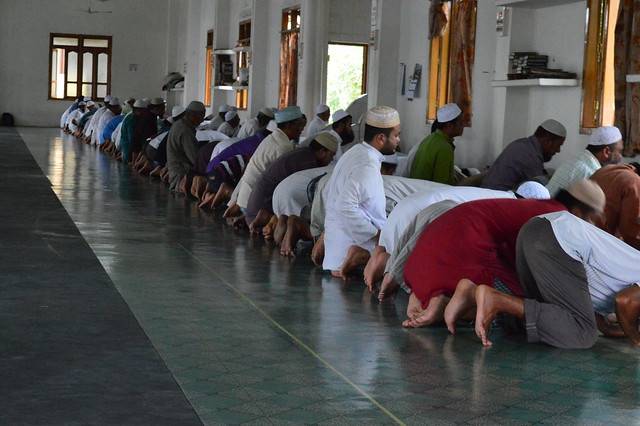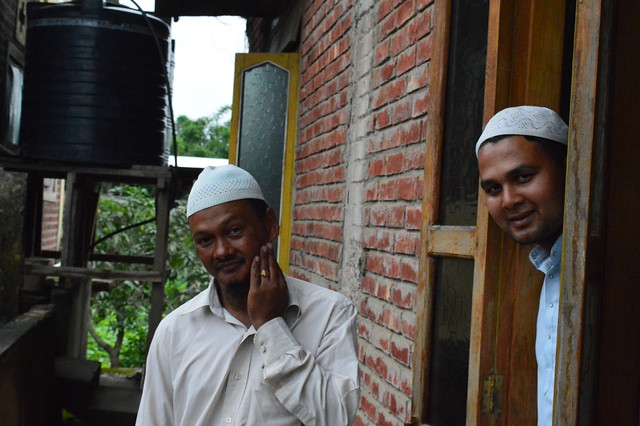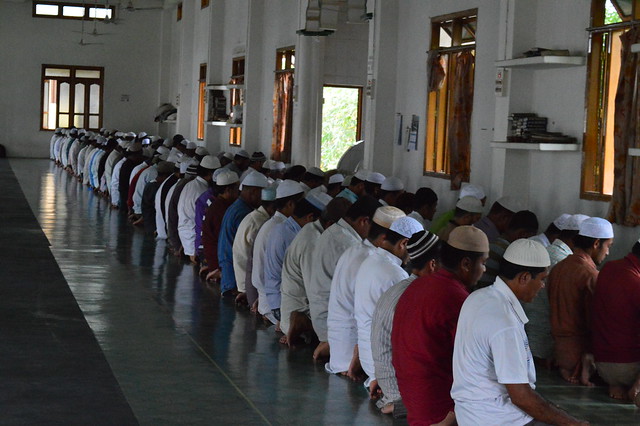By Amit Kumar, Twocircles.net
Imphal (West): Sharif Ahamed runs a tea shop in the Checkon Bazar Area of Imphal. A local, Ahamed has been running the shop for the past thirty years and Monday was the last day that his shop would remain open. From Tuesday, his shop had remain closed during the day as he will be observing Ramadan. “I cannot feed others while staying hungry…it is too difficult,” he says laughingly. “Also, the times are bad…yes, the business will suffer, but in Imphal we are so used to shut downs that it has now become a part of our daily lives,” he adds.

Ahamed is a Muslim from Manipur, also called Pangals in the local terminology. As a resident of Imphal, Ahamed has seen enough of shutdowns and blockades in his lifetime, and the current situation in Imphal seems all too familiar to him. The recent agitations over the Inner Line Permit, part of the three contentious bills passed by the Manipur state government, have seen widespread protests both in favour of passing them and against such a move.
Having been the residents of Manipur for a long time, the Pangals are well aware that the passing or the cancellation of the three bills is likely to impact their fortunes, but they have been left with a bitter taste over being sidelined by the more dominant and powerful Meiteis, who are spearheading the demands to implement these policies.
The three Bills: The Manipur Land Revenue and Land Reforms (Seventh) Amendment Bill 2015 (MLRLR Bill 2015), The Protection of Manipur People Bill, 2015 and The Manipur Shops and Establishments Act (Second) Amendment Bill 2015, are being presented by the Government of Manipur as a ‘solution’ to long pending demand for implementation of Inner Line Permit system by the Meitei organizations to protect them from the high rate of influx of outsiders.
The Inner Line Permit is a special permit required to enter certain restricted areas in the country, and currently such a system exists in Arunachal Pradesh, Nagaland and Mizoram. The Joint Committee on Inner Line Permit System (JCILPS) has been spearheading the movement for legislation to “protect the indigenous population from migrants.”
At the same time, the residents of the hill regions of Manipur, the tribals, have vehemently opposed these bills.

The Muslims, although often categorised as Pangal Meiteis, have been watching from the sidelines for quite some time, and are unsure as to what they can do in such situations: some are even unsure whether they should do something or not. They do not wish to anger the Meiteis, but at the same time, they believe that the Meiteis have conveniently ignored the Muslims in their struggles.
According to N Ahmed, a state government employee, the recent attitude of the Meiteis is in line with their attitude towards the Muslims of the region. “Even though we have lived here for centuries, we are still not seen as Manipuris by a number of Meitei people. When the protest for the demand of ILP broke out, Meiteis got together under JCILPS, but no one bothered to ask us,” he says with a tone of despair. “A number of Muslims support the ILP, but so far although we have joined some protests including in Imphal and Thoubal (two districts with high Muslim population) it would not be wrong to assume that our opinions count for little,” he adds.
Although the Meiteis and the Pangals have co-existed for centuries, it would not be an exaggeration to say that their relation always remains on an edge. Residents of Lilong, in Thoubal, say that the Muslim leadership among parties, and mainly Congress, are comfortable in paying lip-service to the authorities. “There is a provision in the MLRLR which defines the citizens of Manipur as people whose records exist in the 1951 polling records or the census. Leave the tribals or the Meyangs (the term for outsiders) even most of the Muslim families will struggle to prove that they are the original residents of this place. Except for graves, we have no proof that we have lived here for centuries. Will the Muslim leaders address this issue?” asks Mohammed Khaliq, a social worker from Lilong.
Never far from a riot-like situation
The Muslims are also aware that in case there is any violence among communities, they are most likely to be the first casualties. Memories of 1993 Muslim-Meitei riots remain fresh in their minds, when close to 150 Muslims died, have never faded away, more so because of the recent incidents. In March this year, six Muslim boys were beaten up by a group of Meitei while they were on their way to play Holi in Lilong. Less than two weeks later, Meiteis again thrashed three Muslim boys for allegedly trying to steal a vehicle. Two of the three succumbed to their injuries. Four days later, on April 11, the Meitei and Muslims clashed again in Meyang Imphal, and about two dozen people were injured, according to Khaliq. On June 6 during protests by Meitei students in Greater Imphal, shops around a Mosque, including an Islamic books’ shop, were vandalised and copies of Quran were thrown on the streets. “We have to be extremely careful… one mistake can wreak havoc here,” adds Khaliq.

With calls for an economic blockade coming into effect on Wednesday, the Pangals know that the month of Ramadan will be tough in more ways than one. However, as Ahamed pointed out, there is nothing new in this; for everyone in Manipur, such problems ceased to be an issue long time back and have now become a part of the life of every Manipuri, local or otherwise.
